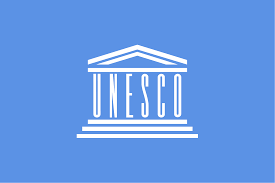UNESCO urges Nepali policymakers to provide conducive environment for media freedom

Kathmandu / Feb 12: The United Nations Educational, Scientific and Cultural Organization (UNESCO) on Wednesday urged Nepali policy makers to adopt policies to provide a conducive environment for media freedom.
Issuing a press statement on the occasion of World Radio Day, the UNESCO Office in Kathmandu stated that it is important to ensure diversity of ownership, participation, location and content of radio-based media in Nepal to achieve the Sustainable Development Goals by leaving no one behind.
“This will catalyze the empowerment and development of marginalized people,” the press statement said.
The UNESCO said that it has supported community radios since 1996. In 2019, the UN body had extended support to Association of Community Radio Broadcasters Nepal (ACORAB) to formulate a set of recommendations to introduce a media policy and later on it was presented to the government.
“They included endorsement of the universally agreed-upon definition of community broadcasting, allocation of frequencies, ensuring ownership and participation of community members in radio stations, establishment of an independent regulatory agency for media, and setting up an independent fund for the development of the broadcasting sector, all of which we hope will receive the government’s highest consideration,” the UNESCO stated while further elaborating the ACORAB’s recommendations to the Nepal government in the formulation of the media policy.
In its statement, the UNESCO reaffirmed its commitments to support Nepal in promoting press freedom, safety of journalists, gender equality in media, freedom of expression and access to information for all.
The World Radio Day is being celebrated on Thursday under the theme “Radio and Diversity”.
“Indeed, radio remains the most widely consumed information medium in Nepal, with the unique ability to reach out to the widest audience. Radio has the ability to shape a society’s diversity and stand as an arena for all voices to speak out, be represented and heard,” it said.
In the press statement, the UNESCO also lauded Nepali radio broadcasters’ job to ensure correct and timely information to people living in the most remote areas who often do not have access to newspapers, television or the Internet.
“The media landscape is fast changing worldwide and in Nepal. It is essential to invest more to make the sector stronger, and also to counterbalance the present increased risks of the fast spread of disinformation and fake news,” it said.
The UNESCO also said that strong, free and independent media is the foundation for peace, democracy and development.
“It is necessary for people to be able to express themselves without fear,” the statement added.
